Climate Action


SDG 13 - Israel - Keeping Its Promise to Innovate
When Israel agreed to ratify the Paris Agreement, they weren’t blowing smoke. Holding fast to its promise to combat climate change, the country committed to reduce per capita greenhouse gas emissions to 26% below the 2005 level by 2030.
In July 2018, The Israel Ministry of Environmental Protection presented the government with the National Program for Adaptation to Climate Change. The program firstly places the onus upon the various ministries of the country to examine different methods of coping with climate change and to submit annual reports on their progress.
The main objectives of the National Program for Adaptation to Climate Change are:
- To reduce damage to people and property, and build economic resistance
- To increase the resilience of natural systems
- To build and update the scientific knowledge base for decision-making
- To educate, raise awareness and make information accessible, and
- To integrate Israel into the global effort, and to promote regional and international cooperation
Many governmental ministries and non-governmental organizations were consulted in the preparation of this plan, including the Ministry of Finance, Ministry of Transportation, Ministry of Health, Ministry of Education, the Water Authority, the Ministry of Public Security, the Ministry of Foreign Affairs and the Ministry of Science.
To be sure, steps are being taken to reduce greenhouse gas emissions. The government is doing its part to support startups in the fight against climate change. In the food industry, for example – an industry notorious for its contribution to environmental pollution – Israeli companies are innovating new products for sustainability. One company has created compostable bio-plastic packaging that turns into compost after 180 days. Clients in the food and even the fashion industries have already embraced the product. Another has innovated a nanoscale portable device for the early detection of food contaminants in the field and use blockchain to manage the data it collects. Still another company is now producing meat by growing animal cells, rather than by raising animals. “Clean meat” has both ethical and environmental advantages. While the ethical advantages may be obvious, environmentally clean meat will save on animal feed and water.
Though there are uncertainties regarding the nature, impact, intensity, scope and timeline of climate change, certain effects of climate change are already being felt: Rising temperatures, changing patterns in rainfall and extreme weather events. The MoEP will continue to update the scientific basis upon which the program was based.
For now, the recommendations offered by the program include but are not limited to: Preparing for extreme weather conditions, such as heat waves, floods, droughts, fire and snow; as well as preparing for long-term climate changes like sea level rise and a reduction of rainfall. A national strategy to adapt to climate change with the hopes of reducing potential damage is already in the works.


SDG 13 – What’s New Under the Climate Action Sun?
Climate Action It’s that time again: the UN Secretary General reiterated his warning about the worsening climate crisis to the annual General Assembly in New
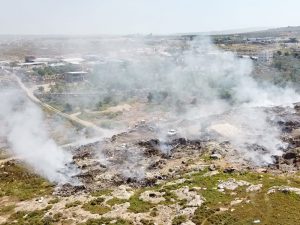

SDG 13 – Climate Action Crossroads
Climate Action Particularly when it comes to the climate crisis, nothing – besides action itself – is more important than honest self-criticism by official bodies
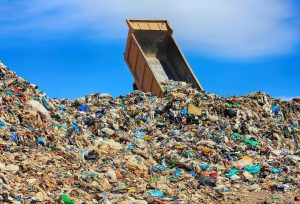

SDG 13 – Climate Action & the Budget
Climate Action We cannot think of a better place to decipher the climate action intentions of Israel’s new Government than its current 2023-24 budget deliberations.


SDG 13 – Climate Action Hanging by a Thread
Climate Action It’s been about a month now since COP27 in Sharm ended with a “loss and damage fund” agreement and a vague outcome regarding decarbonization obligations;


SDG 13 – Social Impact in New Hands
Climate Action It’s been a couple of weeks since Israel’s new Government took office. That certainly isn’t enough time to gauge which way the SDG
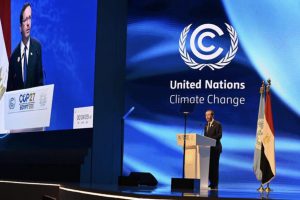

SDG 13 -On a Highway to Climate Hell
Climate Action COP27 is now upon us. In the background, experts continue to warn that time is running out for climate action. Israel was represented at


SDG 13 -Battle vs Climate Crisis Already Lost?
Climate Action In our previous post about the climate crisis we highlighted the UN Secretary General’s warning that humanity is moving toward “collective suicide.” Since
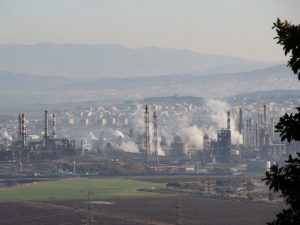

SDG 13 -Is COP27 Worth It?
Climate Action Soon all eyes will be on November’s COP27. Like the other participants, Israel is also gearing up for the conference. But is the
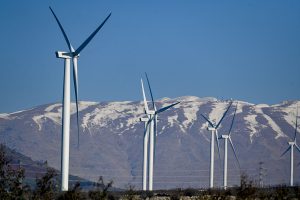

SDG 13 -Climate Crisis: “Collective Suicide”
Climate Action Signs of the ongoing tragic deterioration of our planet are all around us; no need for much of an effort to see them.
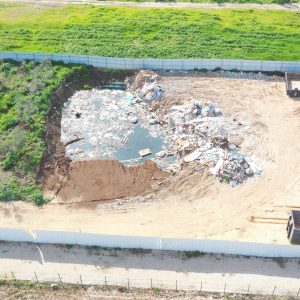

SDG 13 -Let’s Talk About Environmental Justice
Climate Action With all the importance of environmental protection (more on that later), a vital discussion on environmental justice is perhaps falling between the cracks.


SDG 13 -Israel at Glasgow Climate Talks
Climate Action The entire world appears to be focused these days on COP26, the UN Climate Change Conference 2021 taking place in Glasgow between October


SDG 13 – COP26 Take Note: 10 Innovative Israeli Startups Revolutionizing the Climate Change Crisis
Climate Action Climate change is one of the most significant and devastating challenges facing the world as we know it. It requires global unity to


SDG 13 -Status Report: Environmental Protection – Part 1
Climate Action Read Part 2 A month ago we took a quick look at how Israel’s new government was shaping up when it comes to


SDG 13 -Earth Day in Israel
Climate Action World Earth Day 2021 finds Israel, like many other countries, tackling a number of urgent challenges simultaneously. Nevertheless, such pressing needs have not


SDG 13 -Upgrading Environmental Protection
Climate Action When it comes to effective sustainability, collaboration between Israel’s public, private and civil society sectors is fundamental to long-term success. This axiom is
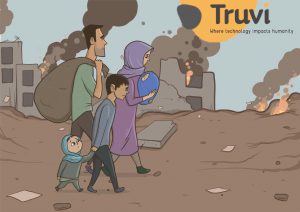

SDG 13 – Where Technology Impacts Humanity
Climate Action Lacking grit, brawn or physical prowess, Artificial Intelligence has become an unlikely new superhero, coming to the rescue in natural disasters to assist
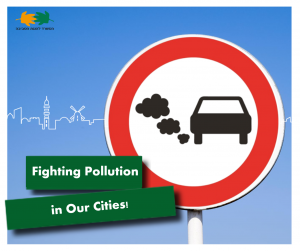

SDG 13 -Cleaning up Israel’s Cities
Climate Action In a previous post we raised the question of whether Israel could successfully jump-start efforts to fight climate change while also combatting the


SDG 13 -Environmental Issues Make a Comeback
Climate Action The jury is still out on whether or not coronavirus restrictions helped or harmed Israel’s environmental protection efforts. On the one hand, data


SDG 13 – to the Rescue
Climate Action In an ideal world there would be no wars, no calamities or natural disasters, no humanitarian crises. Unfortunately, the world is still less


SDG 13 -Monitoring Climate Change for a better Future – GVS
Climate Action The area of climate change-related planning and management has become increasingly important, making in onto the UN’s 2030 Sustainable Development Goals. Indeed, it


SDG 13 -Israel Breaks Its Own Solar Power Production Record
Climate Action Israel Breaks Its Own Solar Power Production Record On a bright, sunny, cloudless Saturday Israel did it. It broke its solar power record.



















